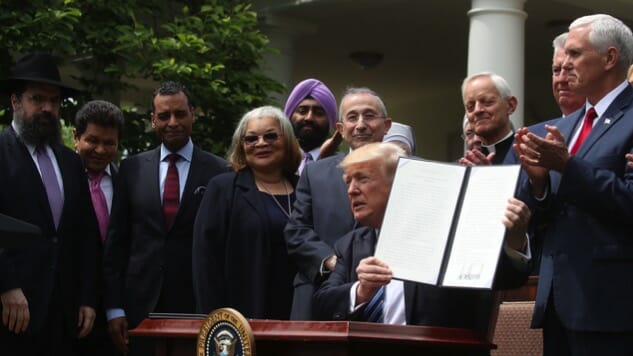What Would Jesus Executive Order? Probably Not This!
Photo by Mark Wilson
This has been a good week for doublespeak, no? The GOP controlled House passed a health care bill favoring the young over the elderly, the rich over the poor, the insurance companies over the consumers and the healthy over the sick. Andrew Jackson apparently could’ve prevented the Civil War despite dying 16 years prior to its most initial proceedings; not to mention, the causes of that conflict were opaque rather than obvious. The cherry on top: a president who spent his campaign talking about Muslim registries and bans just issued an executive order on religious freedom.
When it comes to the executive order, it’ll have more success jumpstarting conversations than actually effecting any hard-and-fast policy changes. Those discussions will be really awkward and angering too. For better or worse, this affords Americans the opportunity to talk openly and uncomfortably about the three things they’re not supposed to—religion, sex and politics—all at once. But most specifically, it allows us an opportunity to reflect on the fact the phrase “religious freedom” is now more about closing doors than opening them.
First, a little more context. It may seem like the ACLU is acting out of character by not suing Trump over this order. But there’s a pretty obvious reason for their inaction: the order doesn’t really do anything and functions more as “an elaborate photo-op” to appease evangelicals than anything else. It’s a big-budget movie trailer for something that may never happen.
-

-

-

-

-

-

-

-

-

-

-

-

-

-

-

-

-

-

-

-

-

-

-

-

-

-

-

-

-

-

-

-

-

-

-

-

-

-

-

-








































